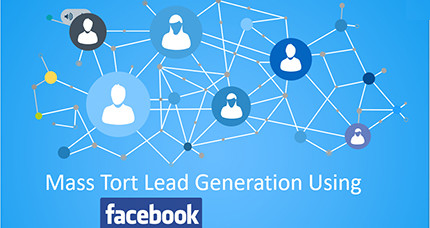-

Published on: 01/10/2024
(PFAS), X Social Media LLC Webinar

Published on: 12/12/2023
End of year invite to spend

Published on: 12/05/2023
Upcoming Daubert Hearing – Tylenol

Published on: 11/08/2023
Shape The Future Of Mass Tort Insider – Share Your Thoughts Now!

Published on: 11/03/2023
AFF/PFAS – First Ad Image, X Social Media LLC

Published on: 10/31/2023
Updates On Roundup And Fire Fighting Foam (PFAS), X Social Media LLC

Published on: 10/06/2023
X Social Media @ MTMP Oct 10-12, 2023 + Legal Action Against X Corp

Published on: 10/03/2023
X Social Media LLC, Takes Legal Action Against X Corp.

Published on: 09/26/2023
Unveiling: Mass Tort Insider – Vol 2 – X SocialMedia® LLC

Published on: 09/19/2023
Camp Lejeune & Latest Updates from X SocialMedia®LLC.

Published on: 07/13/2023
UPDATES on Zantac, PFAS, & FTX Settlements – X Social Media LLC.

Published on: 06/20/2023
Updates in Hair Relaxer, 3M bankruptcy, & Roundup Trial – X Social Media

Published on: 06/13/2023
JPML decisions are in! – X Social Media

Published on: 06/06/2023
This Week’s Highlights: Settlements, CEO Involvement, and Key Deadlines

Published on: 06/01/2023
All Eyes on PFAS: Unveiling the First Bellwether Trial and Beyond

Published on: 05/25/2023
JPML Hearings & New MDLs Today!

Published on: 05/23/2023
Anticipating Industry Shifts: Upcoming JPML Hearings & New MDLs

Published on: 05/16/2023
Inside the Legal Storm: FTX Collapse, PFAS Trials & 3M Talks Resumed

Published on: 05/10/2023
Fresh Perspective: Roundup Diagnoses, Hair Relaxer & Emerging Opportunities

Published on: 05/02/2023
Mass Torts Currently Performing On Social Media

Published on: 04/11/2023
The Wait Is Over! – MTMP April 2023

Published on: 04/04/2023
MTMP April 2023 Preview

Published on: 03/22/2023
Get Cost Per Case From Our Intakes-XSM

Published on: 02/14/2023
New Roll Out 2023 NTL Recap Hair Relaxer JPML

Published on: 01/12/2023
2023 – Jacob Note – Webinar Anne Andrews – Hair Relaxer – Tylenol
Dear Friends,
I hope you had a fantastic holiday season and that your year end was a success. I am pleased to announce that X Social Media is starting off the new year with a bang! Our team has been working hard to improve the technical aspects of our ad campaigns, track spending, and expand into new markets. This evolution is all about enhancing the client experience with advanced reporting that provides actionable insights into your marketing efforts. To make things even easier for you, we have added a Client Success Team to help with any inquiries or concerns you may have about your campaigns. Additionally, we will be offering educational resources, webinars, and important updates about each mass tort, as well as highlighting great co-litigation partners for your team to work with. Remember, mass torts are a team sport and we all win when we work together!
—Best, Jacob
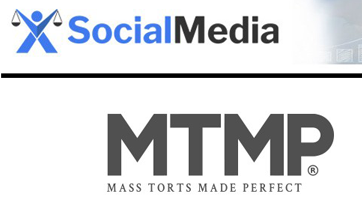
Published on: 10/11/2022
Two Chances to Hear from X Social at MTMP Las Vegas (You Don’t Want To Miss This!) – X Social Media News

Published on: 09/28/2022
Asbestos Bankruptcy Makes a BIG Comeback – X Social News
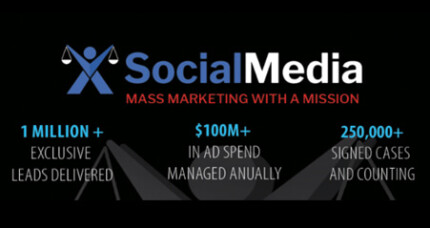
Published on: 09/02/2022
Free Webinar Sept 8th @1PM EST

Published on: 08/16/2022
Camp Lejeune Marketing Update & Zoom Invite for TODAY

Published on: 08/10/2022
Camp Lejeune Justice Act Signed By Biden. Latest Update on what we are seeing now. X Social Media LLC
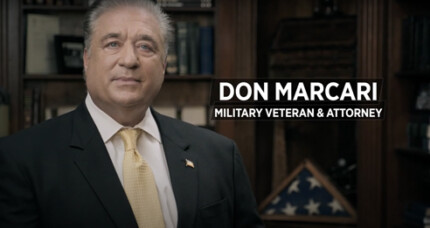
Published on: 08/03/2022
Camp Lejeune Justice Act Has Passed Senate. Here Is What You Should Know! X Social Media LLC

Published on: 06/14/2022
New Lawsuits Starting: Camp Lejeune, Southern Baptist Church, NY Adult Survivor Act – X Social Media LLC

Published on: 05/18/2022
May 19th @2pm, “Grow & Expand Your Practice” Presented by SmartAdvocate, X Social & Intake Desk, with Mass Tort Specialists Tobi Millrood, James Onder & Anne Andrews | X Social Media News
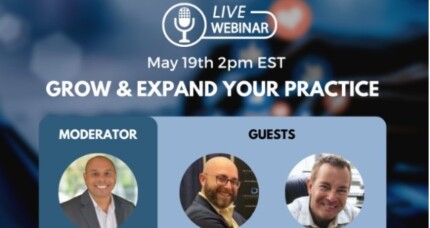
Published on: 05/17/2022
Free lunch on us for webinar attendees: May 19th 2pm, “Grow & Expand Your Practice” with X Social Media, SmartAdvocate & Intake Desk, with Mass Tort Specialists Tobi Millrood, James Onder & Anne Andrews -X Social Media

Published on: 05/17/2022
Two Invites you Won’t want to Miss
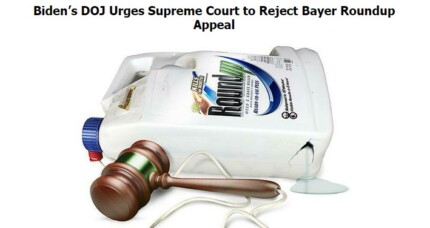
Published on: 05/13/2022
Roundup Breaking News: Biden’s DOJ Urges Supreme Court to Reject Bayer Roundup Appeal

Published on: 05/03/2022
Pay Attention To What Your Vendors Are Doing!- X Social Media
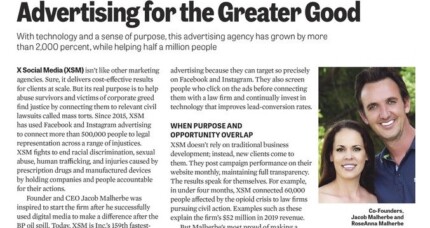
Published on: 03/31/2022
MTMP April 2022 Preview What To Expect – X Social Media

Published on: 03/28/2022
Introducing X Social Capital. A New Way To Get Funding

Published on: 03/22/2022
MTMP Preview April 2022

Published on: 03/08/2022
Trends in Mass Tort Marketing

Published on: 01/18/2022
See Us At NTL In Miami X Social Media LLC
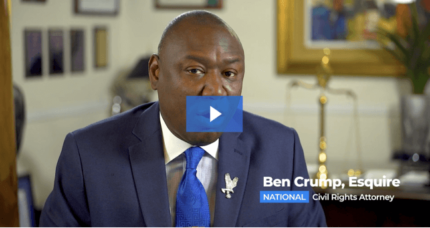
Published on: 01/06/2022
What Are The Big Mass Torts For 2022? X Social Media LLC

Published on: 12/16/2021
The Year in Review + What to Expect from Facebook in 2022

Published on: 12/07/2021
Spots are filling up — don’t get left behind
Published on: 12/03/2021
This PI Facebook Campaign Generated $4,224,783.58

Published on: 11/16/2021
State Of Mass Torts November 2021

Published on: 10/28/2021
10/28 Trial Lawyers Email
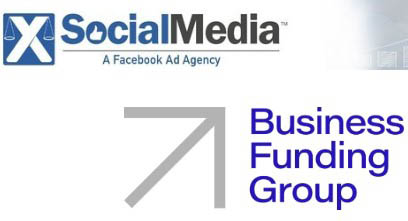
Published on: 10/07/2021
BFG Jarret 10/7/21

Published on: 10/05/2021
MTMP, Plaintiff Support, Lawful Good

Published on: 09/23/2021
Torticity Warmup Message 2.2

Published on: 09/16/2021
Warmup Message 1.2

Published on: 09/15/2021
Warmup Message 1
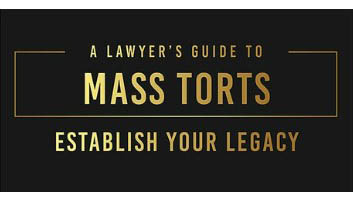
Published on: 08/25/2021
A Lawyer’s Guide to Mass Torts by Jacob Malherbe
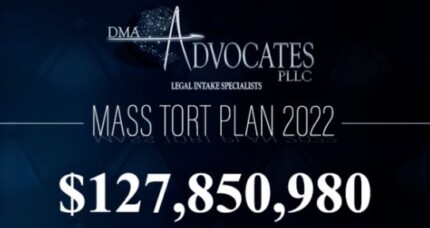
Published on: 08/05/2021
Not in Houston? Here’s a Zoom link for Tonight @530PM CST for Mass Tort Plan 2022 Presented by DMA Advocates & Darren Miller, with Jim Onder, and Jacob Malherbe

Published on: 08/03/2021
Probably the best $25 that you will ever spend to take your firm to the next level + Lawful Good with LaRuby May

Published on: 07/28/2021
Ben Crump interviewed this week on Lawful Good Episode 10 + August 5th Live Event in Houston: DMA Advocates – Mass Tort Plan 202

Published on: 07/13/2021
Phillips CPAP Recall – Cancer Causing Foam? + Connect with XSM In Vegas this Week!
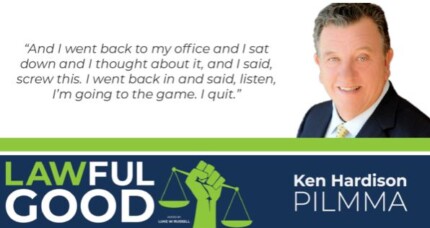
Published on: 06/24/2021
A New Way to Maximize Your Advertising Investment; by X Social Media
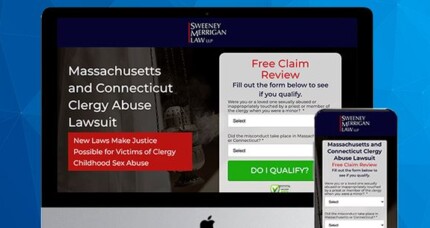
Published on: 04/06/2021
Why Your Law Firm Should Get Actively Involved in Sexual Abuse Cases.

Published on: 03/30/2021
FDA Recalls 246,831 Allergan BIOCELL textured breast implants

Published on: 03/11/2021
MTMP Connect – Texas Power Outage Litigation starts at 2PM EST

Published on: 03/02/2021
Update on Texas Power Failures + Upcoming MTMP Webinar Discussing Developments in Texas Power Grid Failures on March 11th

Published on: 02/25/2021
Texas Power Grid Claims Update

Published on: 02/18/2021
Is the Texas Power Grid Failure Shaping Up to Be the Next BP Oil Spill?

Published on: 02/16/2021
MTMP CONNECT Webinar Today @ 2PM

Published on: 02/04/2021
Xsocial Media Announcing Relationship with Russell Media
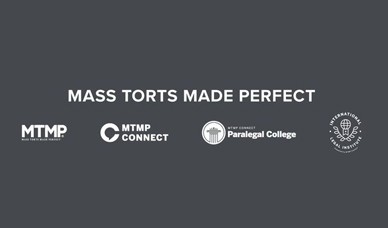
Published on: 02/02/2021
How Can YOU Help to Stop Sex Abuse & Human Trafficking? Find out Today at 2pm EST

Published on: 01/19/2021
Upcoming Webinars & Free Tickets to MTMP

Published on: 01/05/2021
Digital TV & The Effect On Personal Injury Advertising

Published on: 12/30/2020
Introducing Digital TV & A Message from Jacob Malherbe, Founder of X Social Media
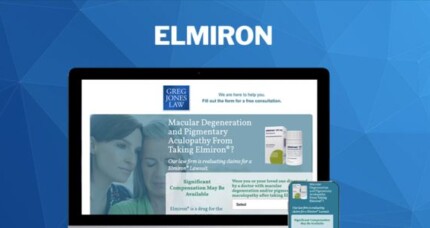
Published on: 12/18/2020
MDLs Approved in Elmiron and Paragard Litigations

Published on: 12/15/2020
Innovative Ways 12.15
Published on: 12/08/2020
BSA Updates Webinar Tuesday 12.9
Published on: 12/08/2020
BSA Updates Webinar Wednesday 12.9

Published on: 12/01/2020
Learn from the SEO & Content Experts’ Webinar 12/1/20

Published on: 11/24/2020
Here’s A Heads Up on 3 Things You’ll Thank Us For – X Social

Published on: 11/18/2020
Roundup Still A Good Bet – X Social Media LLC
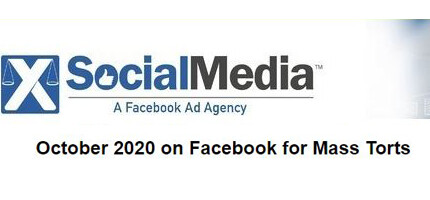
Published on: 11/11/2020
Facebook Campaigns October Mass Torts

Published on: 11/03/2020
Time To Get Zantac Cancer Victims – X Social Media LLC

Published on: 10/27/2020
Mass Torts On Facebook That Work – X Social Media LLC

Published on: 10/14/2020
MTMP Email #3 Oct 14th 2020

Published on: 10/13/2020
MTMP Email #2 Oct 13th 2020

Published on: 10/10/2020
MTMP Email #1 Oct 10th 2020

Published on: 10/06/2020
First Talc Settlement is in …..by X Social Media LLC
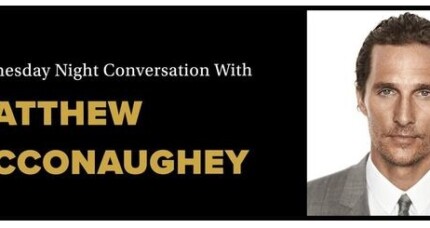
Published on: 10/01/2020
Oct 1st 2020 WeDoWebContent Webinar X Social Media LLC

Published on: 09/22/2020
Best Cases In Mass Torts Right Now by X Social Media LLC

Published on: 09/18/2020
Here is an offer you can’t pass up for MTMP from X Social Media LLC
Published on: 09/01/2020
Today -> Webinar Alert: SMART LAWYERS SEE NO LIMITS – X Social Media
Published on: 08/28/2020
Webinar Alert: SMART LAWYERS SEE NO LIMITS August 31 – September 3 -X Social Media
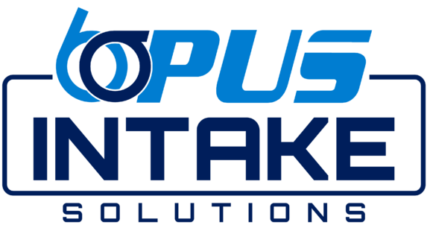
Published on: 08/25/2020
Dynamic Re-engagement and Retention Solutions RoundUp Leads – X Social Media LLC

Published on: 08/18/2020
BSA Webinar Rescheduled – X Social Media LLC

Published on: 08/17/2020
Webinar Alert: New Info For Boy Scouts of America (BSA)- X Social Media LLC

Published on: 08/15/2020
Webinar Alert: New Developments in the Bankruptcy of Boy Scouts of America (BSA) 2nd

Published on: 08/15/2020
Webinar Alert: New Developments in the Bankruptcy of Boy Scouts of America (BSA)
Published on: 08/06/2020
Facebook Campaigns July 2020 Mass Torts – X Social Media LLC

Published on: 07/21/2020
Link for today’s Webinar: Don’t Miss Today’s Webinar on Boy Scouts + Church Abuse at 2pm EST

Published on: 07/21/2020
Don’t Miss Today’s Webinar on Boy Scouts + Church Abuse at 2pm EST

Published on: 07/09/2020
June 2020 on Facebook for Mass Torts

Published on: 07/04/2020
Bottom Feeding Class Action Lawyers Comes To Monsanto’s Defense In Roundup Case
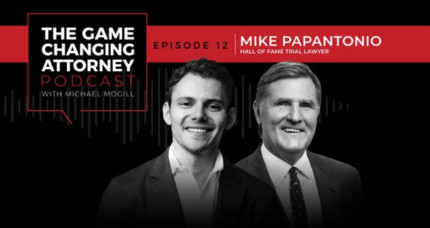
Published on: 06/18/2020
Game Changing Attorney Podcast: Mike Papantonio + MTMP Connect Webinar

Published on: 06/16/2020
Hertz Bankruptcy and Personal Injury Auto Claims in the Time of COVID-19

Published on: 06/09/2020
Specially Scheduled Mass Tort Bankruptcy Webinar

Published on: 06/04/2020
May 2020 Average Lead Prices On Facebook

Published on: 05/28/2020
School Related COVID Cases

Published on: 05/19/2020
Note To The Mass Tort Community

Published on: 05/05/2020
MTMP Connect Webinar – SURVIVAL! Lead Generation for Mass Torts

Published on: 04/30/2020
Intaking Business Interruption Claims A Comprehensive Custom Solution

Published on: 04/28/2020
COVID-19: Insolvency and Insurance in the Context of a Pandemic

Published on: 04/22/2020
Business Interruption Claims Through Facebook Your Best Bet

Published on: 04/21/2020
April 2020 Average Lead Prices On Facebook

Published on: 04/14/2020
COVID-19: Corporate Defendant Files for Bankruptcy

Published on: 04/07/2020
COVID-19: The Benefits to Tort Victims of US Chapter 11

Published on: 04/02/2020
Paycheck Protection Program (PPP)

Published on: 03/31/2020
Boy Scouts Of America Bankruptcy 2nd

Published on: 03/24/2020
A Message from Our Team to You

Published on: 03/17/2020
Coronavirus Effect On Mass Torts

Published on: 03/03/2020
Firefighting Foam Cancer Case

Published on: 02/18/2020
Boy Scouts Of America Bankruptcy

Published on: 01/28/2020
Get In On The New Mass Torts in 2020 – X Social Media LLC

Published on: 01/14/2020
Sexual Abuse Mass Torts 2020 – X Social Media LLC
